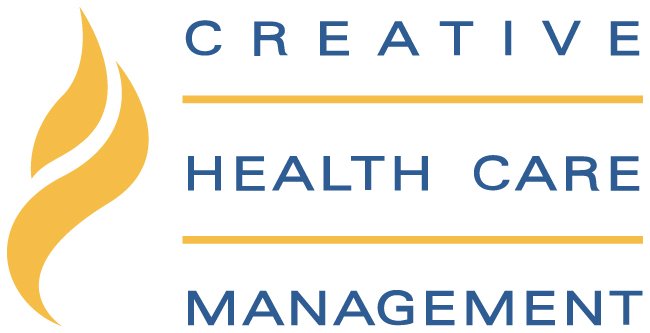Stress and the Nursing Profession
Nurse leaders face significant problems with nurse stress. In fact, nursing research reports experiencing at least one “critical incident” during their careers. Nurses often report suffering from burnout, nurse stress and compassion fatigue.
Workplace Stress
These challenges in managing workplace stress have a variety of causes. Workplace cultures and a stressful environment can cause more stress and psychological distress which can contribute to a healthy nurse experiencing stress and nurse burnout.
Reduce Stress for Nurses
Reducing stress with nurses is an essential element in nursing education for nurse leaders. Nurse leaders are often tasked with managing nurse stress with nursing students and nurses.
Nurses are constantly under stress due to their roles, and managing nurse stress can significantly impact their performance. There are many ways to support nurses who are needing stress relief with in healthcare organizations including practicing self-care by taking breaks and monitoring their well being.
The American holistic nurses association offers healthcare providers lessons in self care.
Symptoms of Nurse Stress
Nurse stress physical symptoms may include: stomach pain, headaches, high blood pressure, anger, irritability, and a lack of sleep. Symptoms like these can become overwhelming and nurses may call in sick.
To manage stress, self-care and well-being are a priority and require communication. Nurse leaders support reducing stress and managing stress via nursing education and physical activity.
When nurse stress progresses to physical and emotional conditions, like depression and anxiety it can effect a nurses family members and also be a public health risk.
Stressful Situations
Nurses and other healthcare professionals face a wide range of stressful situations throughout their careers. From patient safety to providing emergency treatment for natural disaster victims, the demands of healthcare workers can be overwhelming. The physical and emotional strains of nursing are often unavoidable, and the ethical and moral pressures are always lurking in the background.
Nurse stress can negatively impact nurse performance, lead to poor patient outcomes, and affect nurse retention. As a result, recognizing and managing the symptoms of nurse stress is essential to maintaining good health and a strong sense of purpose.
Physical Exhaustion
Physical exhaustion is one of the first signs of nursing burnout. In fact, nearly half of nurses regularly work more than 10 hours per day, and often 12. Along with these long hours, nurses are on their feet during a lot of their shifts. This can lead to workplace stress, exhaustion and physical problems.
Common Cause of Nurse Stress
Uncertainty about a patient’s health and treatment options are among the most common causes of nurse stress. As a result, nurses may become emotionally overwhelmed by these factors.
Nurse leaders can learn to recognize and manage these emotional triggers and help registered nurses avoid burnout. It is crucial for nurses to maintain a healthy work-life balance in order to keep up with patient demands and stay focused on patient care.
Occupational Stress
Occupational stress not only affects the health of nurses, but also influences the quality of care they provide. Expert nursing requires compassion and interpersonal sensitivity, as well as effective communication and the application of professional knowledge and skills. Work-related stress can lead to diminished compassion, and increased practice errors.
The American Institute of Stress (AIS) reports that occupational stress accounts for nearly 80 percent of all workplace accidents and 40% of workplace turnover. The results of these studies indicate that occupational stress can negatively impact the care provided to patients.
How can Nursing Professionals Manage Stress?
Nurse stress can be managed by learning and applying stress relief techniques such as breathwork, meditation, and movement based physical interventions for the mind and body.
There are many ways to manage nurse stress and reduce nurse stress to improve the life of healthcare professionals and nurse leaders. Stress affects mental health conditions as well as emotional exhaustion for healthcare workers and nursing professionals, including registered nurses. This is why managing nurse stress is vital to a healthy nurse.
Stress Management for Nurses
Nurses who work in patient safety may find they are struggling with the demanding work and stressful scheduling. Nurses can practice relaxation by breathing deeply, meditation, and exercises. A nurse should focus on their sleeping habits and ensure they are getting enough sleep each night.
Using Deep Breathing for Stress Management
Although it seems small, breathing is incredibly important for our well being. Deep breathing can help relieve tension. It also improves breathing and heart function. It is a benefit to a person to practice breathing techniques at all times and decrease stress symptoms.
Breathing techniques are also recommended for five – ten minute sessions, if desired. Deep breath is required if one desires to breathe in the belly for a long time, and avoids short shallow breathing to the chest, which causes anxiety if the breathing stops.
Self-Care
In order to reduce stress nurses can practice self-care. Spending time alone or doing things that are relaxing can help relieve stress that occurs on a daily basis. Some ways nurses can practice self care include both mental health and physical health strategies.
Mental Health
Here are mental health self care practices to help with stress relief:
- Try a new hobby
- Piece together a puzzle
- Explore a nearby museum or nature center
- Start journaling
- Play a game
- Write a letter to a friend
- Read a new book or join a book club
- Listen to audiobooks
- Listen to podcasts (even on the ride to work!)
Physical Health
Here are physical health self care practices for managing stress:
- Make a meal plan for the week
- Have a dance party with yourself, kids, or spouse!
- Order groceries to be picked up or delivered to your home
- Prioritize healthy food choices
- Take a nap – even if it’s only 20 minutes
- Physical activity (exercise releases endorphins)
- Join a gym to get social and be a part of a class
- Try intermittent fasting
Barriers to Seeking Help for Mental Health Issues
First, stigma. Stigma is an enormous roadblock to seeking help for mental illness. It prevents nurses from talking about their problems and can even lead to denial. It also hinders their treatment by causing them to feel shame and guilt.
These stigmas often lead to delayed or denied treatment. They may even choose not to seek professional help. The consequences of stigma on nurses are devastating.
Nurse leaders taking the time to talk about mental health, psychological distress and stress among nurses is healing and in will help both nurses and patient outcomes improve.
Sources of Stress in Nursing Well-Being
Nearly 92% of nurses and health professionals report feeling high or moderate levels of stress at work. Other factors that affected job stress included dealing with patients who were nearing the end of their lives, problems with patients, and unresolved conflicts with hospital staff.
Although these factors were not regarded as the main causes of high levels of stress, they did influence nursing professionals’ perception of their job stress.
Creative Health Care Management
CHCM partners with health care organizations to improve quality, safety, patient experience, staff and physician satisfaction, and financial performance by improving relationships.
Over the last four decades, CHCM has helped transform health care with Relationship-Based Care (RBC), delivered comprehensive Magnet® preparation services, and revolutionized the field of competency assessment.
Our interprofessional team has partnered with health care organizations of all sizes on five continents on everything from one-day presentations, to organizational and system-wide assessments, multi-day workshops, and multi-year RBC implementations and Magnet® journeys.
Our forty-plus years of experience working with hundreds of hospitals and healthcare organizations around the world have equipped us to offer unparalleled consulting to help create a thriving, positive, engaged workforce—and the best patient care.

Nurse Wellbeing
Factors contributing to a positive state of well-being for nurse well being include altruism, self-care and meaningful recognition. Being able to provide nurses with an outlet to express their feelings can help with stress reduction, and it can have a positive impact on their overall well being with their nursing practice.

Mental Health in Nursing
Nurses are under increasing pressure to perform in stressful environments, and these high demands can have a profound impact on their mental health. Conflict within the workplace are factors that can exacerbate mental distress with nurses.
The nursing profession has a shortage. This shortage can also be the cause of depression and other mental illnesses, such as compassion fatigue and even substance abuse. Psychiatric nursing as well as ER nurses are more likely than other workers to suffer from depression and anxiety. A mental health crisis has created high job turnover rates, which has a negative effect on patient care.

Moral Distress
Nurse moral distress is a feeling of guilt or shame that can happen when nurses come into contact with the consequences of their work. The nurse may feel that they are being forced to be dishonest or make judgments about how much pain medication should be given when they know that it will hasten death.

Nurse Burnout
Nurse burnout is a state of emotional, mental, and physical exhaustion that is caused by prolonged exposure to stressors in the workplace. It can lead to job dissatisfaction, decreased productivity, and increased absenteeism. Emotional demands in combination with a high stress work environment can lead to emotional health problems.





